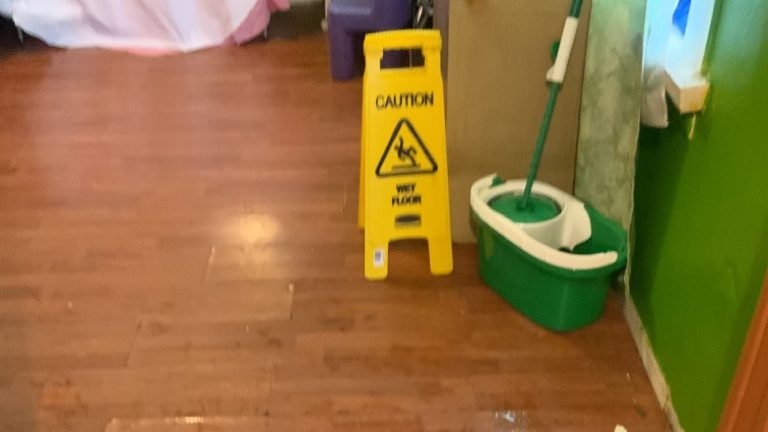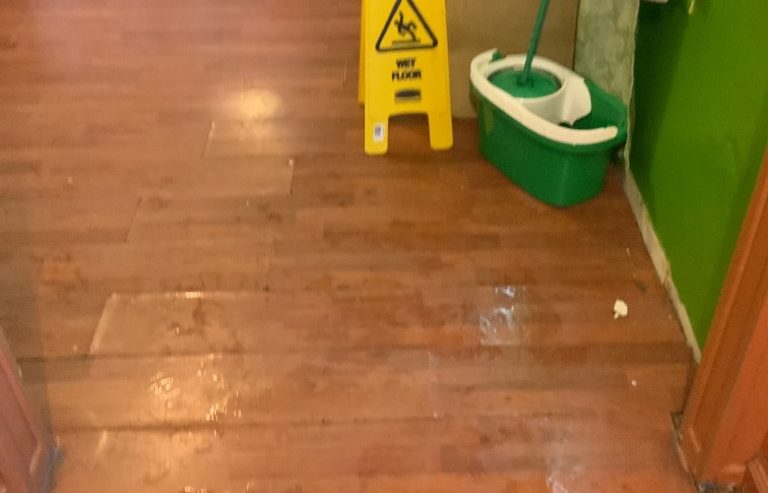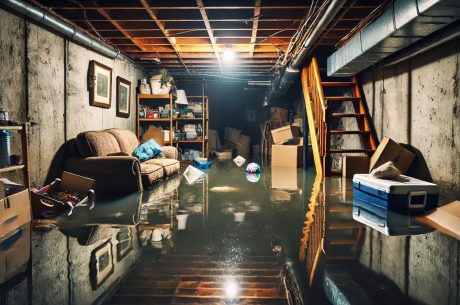Water damage can wreak havoc on your property, causing significant structural damage, mold growth, and potential health risks. In the event of water damage, having the right insurance coverage can help alleviate the financial burden associated with restoration and repairs. In this blog post, we will delve into the topic of insurance coverage for water damage restoration in New Jersey, providing valuable insights to help you navigate the claims process and protect your property.

Understanding Homeowner’s Insurance:
Most homeowners in New Jersey have a standard homeowner’s insurance policy, which typically covers water damage caused by sudden and accidental incidents, such as burst pipes, plumbing leaks, or an appliance malfunction. However, it’s important to review your policy to understand the specific coverage, exclusions, and limitations related to water damage.
Types of Water Damage Covered by Insurance
Sudden Plumbing Issues: Burst pipes, faulty plumbing, or an overflowing toilet can lead to extensive water damage. These types of incidents are generally covered by homeowner’s insurance, including the cost of repairing the plumbing system and restoring the affected areas.
Weather-Related Water Damage: New Jersey is prone to severe weather conditions, such as heavy rains, storms, or hurricanes. Damage caused by weather-related events like roof leaks, window leaks, or flooding may be covered, depending on the specific policy and endorsements.
Appliance Malfunction: If a household appliance, such as a dishwasher or washing machine, malfunctions and causes water damage, homeowner’s insurance often provides coverage for the repairs and restoration.
Fire-related Water Damage: Water damage resulting from firefighting efforts, such as extinguishing a fire in your property, is typically covered by homeowner’s insurance.
Accidental Water Damage: Accidental incidents, such as accidentally leaving a faucet running or a bathtub overflowing, are usually covered by homeowner’s insurance.
Types of Water Damage Not Covered by Insurance
Flood Damage: It’s important to note that homeowner’s insurance policies typically do not cover flood damage. For properties located in flood-prone areas, obtaining separate flood insurance through the National Flood Insurance Program (NFIP) is crucial to protect against flood-related water damage.
Gradual Damage: Insurance policies generally exclude coverage for gradual or long-term water damage caused by maintenance issues, such as plumbing leaks that have gone unnoticed or neglected for an extended period. Regular maintenance and prompt repairs are essential to prevent gradual water damage.
Negligence: If water damage occurs due to negligence, such as failing to fix a known plumbing issue or not properly maintaining the property, the insurance provider may deny coverage. It’s essential to address maintenance and repair issues promptly to prevent claims denial.
Insurance Claims Process for Water Damage Restoration
In the event of water damage, it’s crucial to take immediate action to mitigate further damage and protect your property. Follow these steps to navigate the claims process effectively:
Document the Damage: Take photographs or videos of the affected areas before starting any cleanup or repairs. This documentation will serve as evidence during the claims process.
Contact Your Insurance Provider: Notify your insurance provider about the water damage incident as soon as possible. Follow their instructions and provide all necessary documentation and information.
Mitigate Further Damage: Take necessary steps to prevent additional damage, such as shutting off the water source or arranging for emergency repairs. Keep records and receipts of any temporary repairs or expenses incurred to protect your property.
Work with Restoration Professionals: Contact a reputable water damage restoration company in New Jersey to assess the damage, provide an estimate, and start the restoration process. They can also assist you in documenting the extent of the damage for your insurance claim.
Cooperate with the Insurance Adjuster: An insurance adjuster will be assigned to evaluate the damage and assess the claim. Cooperate fully during their inspection and provide all requested information promptly.
Review and Negotiate the Settlement: Once the insurance adjuster determines the coverage, review the settlement offer carefully. If you believe it is insufficient to cover the full extent of the damage, negotiate with your insurance provider and provide additional evidence, if necessary, to support your claim.
Understanding insurance coverage for water damage restoration in New Jersey is vital to protect your property and ensure a smooth claims process. Review your homeowner’s insurance policy to understand the coverage and exclusions related to water damage. Consider obtaining additional flood insurance if you live in a flood-prone area. In the event of water damage, act promptly, document the damage, and work with PuroClean emergency recovery service New Jersey to mitigate further damage and facilitate the claims process. By being knowledgeable and prepared, you can navigate the insurance process effectively and restore your property to its pre-damage condition.



